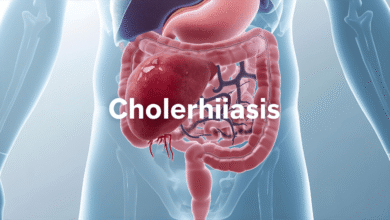why does ozdikenosis kill you: exploring the claims, possible causes, and what the evidence really says

1. Introduction — framing the question
why does ozdikenosis kill you is a stark and urgent question that circulates online. People encounter the phrase on blogs, social posts, and headline-driven writeups, and the natural reaction is to ask what exactly is happening inside the body that could make a condition fatal. This article collects the available claims, explains the biological ideas commonly offered as explanations, and weighs those ideas against what credible medical processes actually look like.
Because reliable medical documentation for ozdikenosis is limited or absent, the goal here is not to present a confirmed scientific picture but to summarize the claims you will see, explain plausible medical mechanisms that would produce the described outcomes, and offer a reasoned conclusion about why the phrase why does ozdikenosis kill you keeps appearing.
2. What people mean when they ask why does ozdikenosis kill you
When readers ask why does ozdikenosis kill you, they are usually reacting to a set of recurring claims: that the condition attacks cellular energy systems, that it leads to progressive multi-organ failure, and that diagnosis is often delayed because early signs are vague. Several informal sources describe ozdikenosis as a rare genetic or metabolic disorder that ultimately prevents cells from producing the energy they need, and that organ systems collapse as a result.
Key takeaways reported across those sources when people ask why does ozdikenosis kill you:
- The central claim is energy failure: cells allegedly lose the ability to make usable energy (ATP), so tissues stop functioning.
- A cascade of organ dysfunction is described: heart, lungs, kidneys, liver and nervous system are cited as commonly affected.
- Many writeups emphasize poor prognosis and a lack of established cure or standardized treatment.
- Reports often describe nonspecific early symptoms, which leads to late detection and worsened outcomes.
These are the consistent themes you will find in public writeups tied to the question why does ozdikenosis kill you.
3. How a condition like ozdikenosis could kill you — hypothetical biological mechanisms
To understand why does ozdikenosis kill you, it helps to translate the claims into known medical mechanisms. Even if the specific name is unverified, the pathways described are familiar in medicine.
Mitochondrial and cellular energy failure
- Cells rely on mitochondria to produce ATP, the molecular currency of energy. If mitochondria fail across multiple tissues, energy-dependent processes stop.
- Energy failure in heart muscle causes pump failure; in the brain it causes loss of consciousness and seizures; in the respiratory muscles it causes breathing problems. Widespread mitochondrial collapse would therefore be catastrophic.
Multi-organ failure as a final pathway
- Many fatal illnesses converge on multi-organ failure: the simultaneous failure of two or more vital organs. This is the usual mechanism by which severe systemic disease leads to death.
- If ozdikenosis, as described in some sources, affects many organs at once, then the natural clinical outcome is a declining ability to maintain circulation, gas exchange, detoxification and metabolism.
Immune dysfunction and secondary complications
- Some descriptions claim immune suppression or dysregulation. If the immune system fails, opportunistic infections or unchecked inflammation can accelerate organ damage.
- Secondary infections in a compromised host are a frequent reason why chronic metabolic conditions become terminal.
Taken together, these mechanisms provide a plausible explanation for why people ask why does ozdikenosis kill you: if a condition truly inflicted widespread energy failure and immune breakdown, the clinical course described would logically lead to death.
4. Commonly reported symptoms and warning signs
When searching for answers to why does ozdikenosis kill you, writers list several repeating symptoms. These symptoms look like those of many metabolic and mitochondrial disorders, which may explain why the description feels familiar.
Commonly reported signs (as described in lay sources):
- Persistent, unexplained fatigue and muscle weakness.
- Shortness of breath or progressive respiratory difficulty.
- Unintentional weight loss and loss of muscle mass.
- Abnormal laboratory markers in liver or kidney tests in advanced stages.
- Neurological changes such as memory problems, tremors, or seizures in later phases.
These are the kinds of clinical features that, when left uninvestigated, can lead to the late detection people cite in response to why does ozdikenosis kill you.
5. Diagnosis and the problem of limited evidence
A key reason the question why does ozdikenosis kill you remains unresolved is the lack of solid, peer-reviewed documentation. Reliable diagnostic criteria, genetic confirmation, and published case series are the standard that would move an entity from rumor into recognized disease.
Problems commonly encountered:
- Inconsistent reporting across informal sources.
- No widely accepted laboratory or imaging test tied to a definitive diagnosis.
- Absence of genetic or pathological studies publicly available for review.
Because of these gaps, it is difficult to say with confidence whether ozdikenosis is a distinct medical entity or a conflation of symptoms from known disorders. This evidentiary gap is central to any honest answer to why does ozdikenosis kill you.
6. Treatment approaches that are mentioned and their limits
Most sources that discuss why does ozdikenosis kill you also note the lack of a standardized cure. What is commonly suggested are supportive and symptomatic measures, which are the mainstay for many severe metabolic conditions when no targeted treatment exists.
Typical management steps described:
- Supportive care for failing organs (oxygen therapy, respiratory support, cardiac monitoring).
- Treatment of complications such as infections or metabolic derangements.
- Referral for genetic counseling when a hereditary basis is suspected.
These measures can stabilize patients and sometimes slow decline, but if a disease truly causes global cellular energy collapse, supportive care alone may not reverse the underlying process — explaining why many sources conclude with poor outcomes when discussing why does ozdikenosis kill you.
7. Points to consider before drawing conclusions
When readers confront the question why does ozdikenosis kill you, applying critical thinking helps separate plausible biology from uncertain claims.
Quick checklist:
- Evaluate the source: does it cite medical studies or only anecdote?
- Look for diagnostic criteria or tested biomarkers that support the diagnosis.
- Compare the reported signs to documented mitochondrial and metabolic disorders.
- Ask what evidence would confirm the disease: genetic findings, pathology, or published case series.
These points help orient research and writing when addressing why does ozdikenosis kill you.
8. What this means for writers and readers
If you plan to write about why does ozdikenosis kill you on a blog, treat the topic with care. Present the claims clearly, emphasize the limits of current evidence, and avoid presenting speculation as established fact. Use the topic as an opportunity to educate readers about how similar, documented diseases operate and why reliable sources matter.
Suggested approach for an article:
- State the question plainly at the outset.
- Summarize commonly reported claims and highlight gaps.
- Explain plausible medical mechanisms that would lead to death if those claims were true.
- Offer practical advice on verifying medical claims and seeking professional evaluation for concerning symptoms.
9. Conclusion — a responsible answer to the central question
why does ozdikenosis kill you is a question that captures worry and curiosity, but at present the evidence needed to give a definitive, medical answer is missing. The repeated explanations you will find online tend to describe energy failure at the cellular level, cascading organ dysfunction, and immune complications — all mechanisms that, in real and well-documented diseases, can lead to death. However, without validated diagnostic criteria, published studies, or confirmatory genetic data, the safest interpretation is that the name is either unverified or conflated with other metabolic disorders.
If you are researching why does ozdikenosis kill you for a blog, keep the narrative balanced: explain the claims, show how similar mechanisms operate in known diseases, and clearly state the limits of the evidence. For anyone worried about symptoms described in these accounts, the most practical step is to consult a qualified healthcare professional rather than rely on unverified online descriptions.



